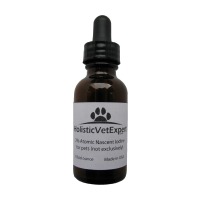|
Equine Herpes Virus
Equine Herpes Virus syndrome is the result of a DNA switch in the old rhinopneumonitis respiratory disease in
horses. Instead of just creating a severe cold, it can cause a very severe meningitis and encephalitis - that is it
affects the brain and spinal column. Here is a case study of 24 year old gelding, INDY. Indy and Thunder, two
geldings at a farm in southwestern Washington both showed serious problems the same day. Both were very lame on one
front leg while showing hind end weakness at the same time. They were sluggish, barely moving, and showing signs of
mild colic.
Neither had a fever; their gum color was fine.
I submitted blood samples to the private lab I use in Oklahoma. I have incidentally found that using a small,
private lab is more efficient and more reliable than a big corporate laboratory chain. With high volume, comes a
loss of professionalism and accuracy. I take my patients very seriously and need accurate information in a timely
manner. I also like the more personal contact with lab personnel - being able to talk to the same people all the
time. This is comparable to deciding whether you want to get eye exams from a small optometry practice or
Walmart.
We had no idea what the initial cause of these symptoms were. We suspected toxic plants. The symptoms were even
more bizarre because two (out of eight total living at this farm) were ill at the same time.
Initial lab results showed that both horses were slightly anemic, but the main organ involved was the liver. Tests
for EPM (Equine Protozoal Myeloencephalitis ), west nile virus, and other encephalitis panels were all negative. We
knew we had a strange disease here.
I began treating Indy and Thunder with HVE Liver Flush twice daily and
Chinese formulas for pain and stiffness. The horses slowly felt better but did not clear. It was also obvious that
both were mentally sluggish, especially on warmer days.
I tested both geldings radionically and realized we were dealing with mainly neurological signs-even with the brain
itself being involved. On a hunch, I then submitted more serum to the lab at Washington State University. This
laboratory does only specialized testing. I requested an equine herpes panel. Bingo, we got a positive diagnosis
with this one. Indy and Thunder had contracted this nasty, very contagious
virus. This neurologic form is technically known as equine herpes
virus myeloencephalitis and is often referred to as "neuro" EHV-1. Some horses show initial
symptoms of a cold, but my patients did NOT show any signs of respiratory involvement.
I talked with one of the equine veterinarians at the University but realized they had NO specific treatment and no
plan of therapy besides rest and supportive care. Anti-virals were not really an option, they felt, because horses
don't tolerate them well and they were cost prohibitive. As a matter of fact, I had a much more intensive plan of
attack with my holistic supplements and therapies.
We could now test the boys radionically to find supplements to treat the specific systems involved.
By now, we realized that other horses on the farm had also contracted the disease but only two others were showing
symptoms. One mini gelding, Willow, was clearly depressed, sluggish, and not wanting to move. The donkey, Albert,
was extremely lame and painful. One mini mare, Chantilly, showed only incoordination. Surprisingly, the other three
horses tested with very high titers but were showing no symptoms. I tested all
radionically and all were put on appropriate supplements to keep the disease from progressing.
The contagious element in these horses is just nasal secretion or
saliva. Obiously it will spread quickly through any one herd. Three
other horses within ten miles of this farm had come down with the herpes virus. No one has
determined for sure how this virus spreads. Seven of the sick horses had not been exposed knowingly to sick equines
or had been to shows, trail rides, etc. I suspect that an insect has spread this virus - probably flies
carry mucous from nostril to nostril. There is no vaccine for this, but
we are developing a nosode from the infected animals themselves. This will soon be
available on our web site.
Some of the products that we have successfully used on these cases are HVE Equine Immune
Pro, HVE Equine Joint Formula, HVE Equine Liver Flush, HVE Chinese
Encephalitis Formula 1 & 2, and Nutriwest Total Brain formula.
I also supplement these animals with lysine and SOD. The horses
are also on HVE Natural Balance and HVE Equine
GI Matrix Plus if they are having any digestive issues. As I said, I am developing two nosodes for this
disease-one for treatment and one for prevention. You can read more about nosodes in my general article on vaccines
/ page 2.
by - Dr. Jenifer Preston
Back to
Top
###
| 











